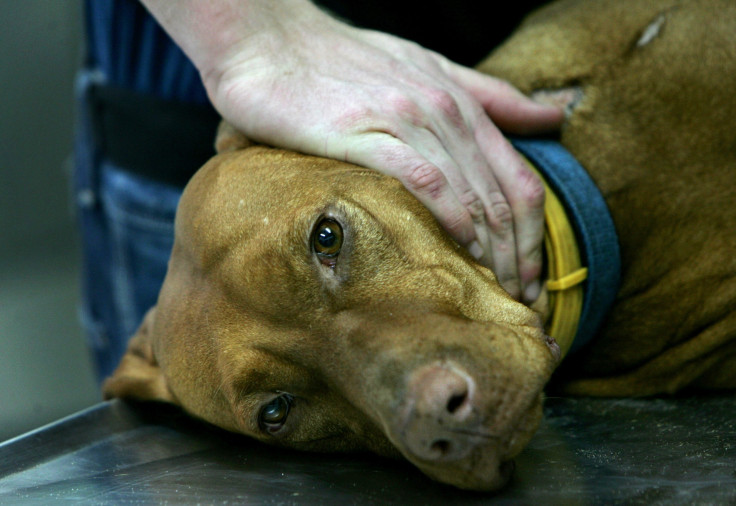FDA Issues Pet Food Safety Ruling Following String Of Foodborne Illnesses In Animals

For the first time, the U.S. Food and Drug Administration, or FDA, proposed new, tougher rules for how our pet food is manufactured. The rules, if implemented, would help prevent harmful contaminants like bacteria from infecting pet food, with the goal of reducing food-borne illnesses.
There is currently no requirement for pet food products to be approved by the FDA before going to market. Under the proposed new rules, manufacturers would have to follow good manufacturing practices to address such things as food sanitation, CNN reported. The regulations would also give FDA inspectors more authority to reprimand offenders during the manufacturing process, rather than waiting for tainted products to reach consumers.
"Unlike safeguards already in place to protect human foods, there are currently no regulations governing the safe production of most animal foods," Daniel McChesney, director of the Office of Surveillance and Compliance at the FDA's Center for Veterinary Medicine, said in a statement on the FDA’s blog. "There is no type of hazard analysis. This rule would change all that."
The proposed rules, called Preventive Controls for Food for Animals, comes just a few days after the FDA issued a warning about Chinese-made jerky treats that caused thousands of pet illnesses and deaths. Since 2007, there were 3,600 dogs and 10 cats in the U.S. that reportedly suffered treat-related illnesses, according to the Los Angeles Times. Nearly 600 of these pets died.
Also, last year, in South Carolina, there was a Salmonella outbreak at a pet food facility that led to the recall of 30,000 tons of dry dog and cat food. Nearly 50 people became ill after handling the contaminated pet food.
"The bottom line is that we want the foods that animals eat to be safe," McChesney said. "We want you to be safe if you're handling pet food or eating foods derived from animals. This rule will help us do that."
Six years ago, the FDA issued the biggest pet food recall in history after a Chinese producer contaminated dog and cat food with melamine, a toxic compound found in plastics. The compound caused the deaths of animals across the U.S.
The New York Times reported that the massive recall of pet food in 2007 led, in part, to the U.S. government passing the Food Safety and Modernization Act in 2011. It gave the FDA more power over food imports and allowed it to set new standards for processed foods.
The new measure would give FDA inspectors similar influence over imported pet food, and it would help prevent future outbreaks like the one that occurred in 2007. The agency would be able to inspect a factory’s records to make sure its products were heated correctly to reduce contamination from bacteria.
"This is a critical shift from the past," Michael Taylor, the FDA's deputy commissioner for Foods and Veterinary Medicine, told The Los Angeles Times. "We [currently] take evidence and go to court and persuade the court to act."
The FDA will hold public meetings over the next few months about the proposed new rule. Compliance with the proposal is expected to cost about $130 million, according to the Los Angeles Times.
© Copyright IBTimes 2024. All rights reserved.






















